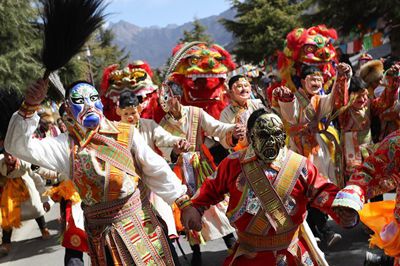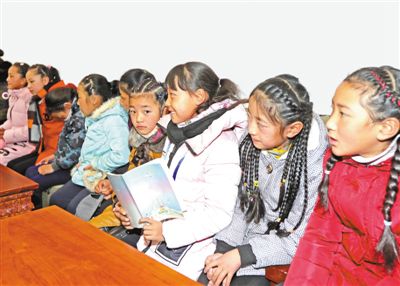|
14. How was the regional ethnic autonomy implemented in Tibet?
A: Regional ethnic autonomy is a major political system whereby China administrate the areas inhabited by ethnic minorities in compact communities. China's Constitution has provisions regarding regional ethnic autonomy, and the Law of the People's Republic of China on Regional Ethnic Autonomy has been promulgated. According to the Constitution and the Law of the People's Republic of China on Regional Ethnic Autonomy, Tibet enjoys broad self-government rights, including legislation, Tibetan language utilization, human resource management, and natural resource exploration, Since the founding of Tibet Autonomous Region, the local people's congress and its standing committee has formulated more than 120 local regulations, and within the ambit of certain national laws, special implementation methods with Tibetan characteristics have been adopted. Apart from the standard national holidays, the Tibetan New Year and the Xodon Festival are also defined as public holidays within Tibet. Owing to its special geographical situation, Tibet has a 35-hour working week-5 hours less than in other areas. The chairman of the Standing committee of the People' Congress of Tibet Autonomous Region, chairman of the People's Congress of Tibet Autonomous Region, chairman of the government of Tibet Autonomous Region, and other major local leading posts are all occupied by Tibetan residents, as a means of increasing the total number of Tibetan cadres. The People's Congress of Tibet Autonomous Region has adopted the Regulations Concerning the Study, Use and Development of the Tibetan Language, which specifies that equal stress should be laid on the Tibetan and Chinese languages, with the greater emphasis on the former. All laws, rules, regulations, government documents and announcements should be written in both Chinese and Tibetan. In lawsuits, if the litigant participant is Tibetan, the case should be heard in the Tibetan language. Implementation of the regional ethnic autonomy guarantees the political and economic rights of the Tibetan people. |
- Home
- News |Tibet |Exclusive |China |World |Other Tibetan-Inhabited Area |Tibet through the Eyes of Foreigners |Related News
- Documents |White Papers |Others
- Photo |Politics |Economy & Society |Culture & Religion |Human & Nature |Beautiful Tibet |Other Tibetan-Inhabited Area |Exchanges |Related
- Video |News |Documentary |Micro-Video |Entertainment
- Art
- Tourism
- In Focus
- About Tibet






